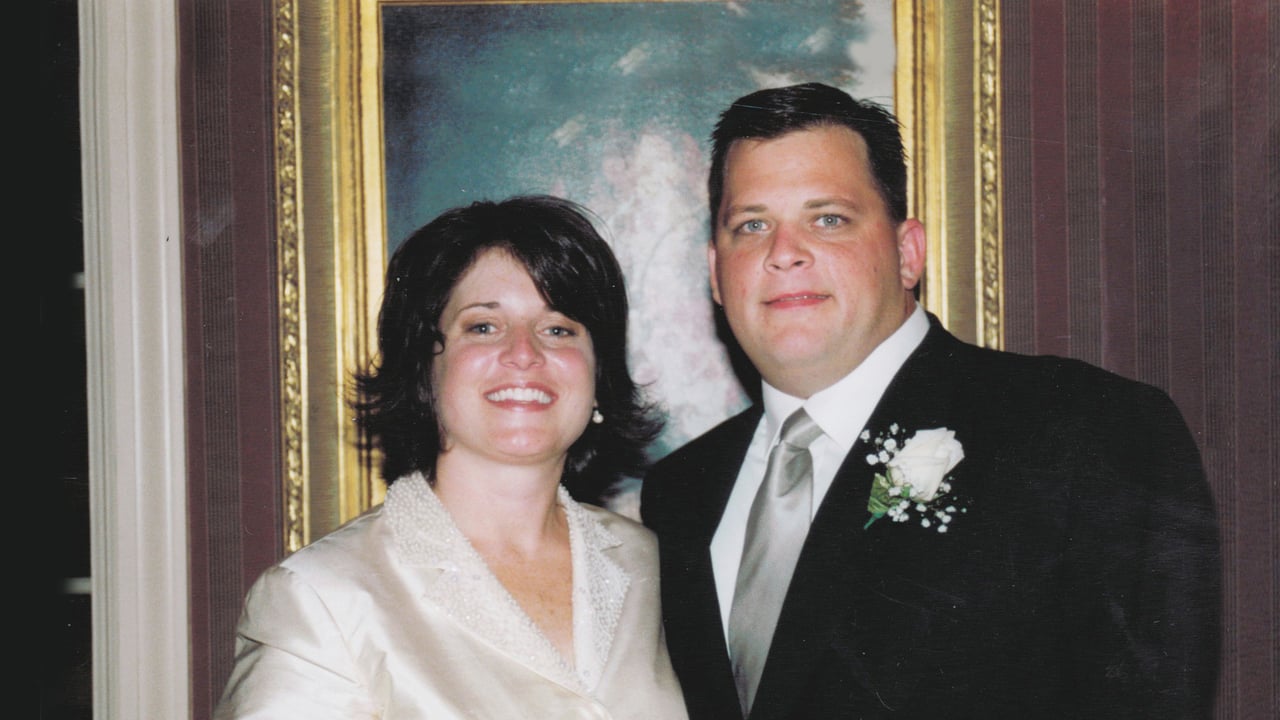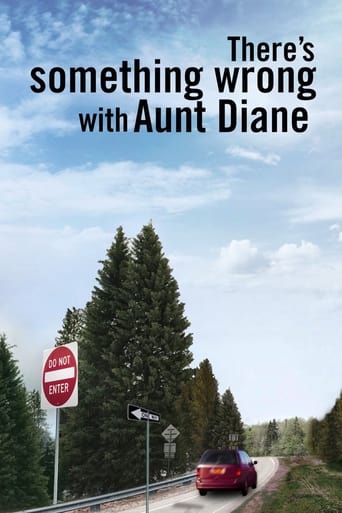

Very well executed
... View MoreLack of good storyline.
... View MoreGreat movie. Not sure what people expected but I found it highly entertaining.
... View MoreStrong acting helps the film overcome an uncertain premise and create characters that hold our attention absolutely.
... View MoreThis should have been about an hour. What this film comes down to is one more test to see if Diane was drunk or not when she fatally killed 8 people with her van.There is many victims of this car accident. Diane's husband is also a victim. His wife died as well as daughters. He is now a single father. He believes his wife's autopsy report was wrong. The report says her blood alcohol was .19. You are legally drunk .08 and above!Now my opinion about this woman was that since her husband and herself worked opposite shifts he did not know she was heavy drinker. To this day I am sure he doesn't think she was but trust me .19 meant she was most likely not a "Casual Drinker". With that being said I do feel bad for him. We learn in this documentary that he is still struggling with loss. WE also see he is now a victim of internet bullying. People should leave him alone. This is worth watching however this entire would have been more effective if they had edited it down. Many of the same things get repeated by the same people.
... View MoreThis tragedy only happened a few years ago, so I remember it well. It was quickly revealed that "Diane" was drunk and high behind the wheel when the horrible wrong way crash occurred. End of story, very sad, but no mystery involved. However, her family had much difficulty accepting that and this documentary shows us why in some detail. Diane was a high functioning wife, mother and employee. She was meticulous, even a perfectionist at times. She had some psychological baggage, but doesn't everyone? The mystery that remains is why she choose to use in such a manner on that day as to be totally incapable of operating a vehicle. It wasn't like her, it was very out of character. Her family repeatedly sought some other explanation, possible a medical problem, grasping at straws.Overall, interesting but very unsettling. It makes you ponder and question if there are parts of ourselves and our most intimate loved ones that we do not know or understand.
... View MoreBe warned! This movie stuck with me for nearly a week. After it ended I was kind of in shock for the rest of the day. Many may have experienced a similar feeling after seeing Schindler's List, but even that movie contained more hope than this.This is one of the highest quality documentaries I've seen. Very well done. The suspense builds throughout as husband and sister-in-law battle to prove that Diane was not under the influence; that an autopsy stating the contrary had to be a mistake. The film never states this one way or the other, but by the end you will know. It doesn't even come close to preaching on this subject, but makes the point in an extremely powerful, yet subtle way.We first hear about the victims, and the accident, see and hear bits of the funerals. Then we hear the coroner's statement, and think, 'Oh, no, this couldn't be true.', and identify with the denial of Diane's family.Towards the end, we see that Daniel, the widower, seems cold and immature. He does not seem very warm to his young son, the only survivor. I could imagine feeling something like 'My God, you are all I have left, I'm lucky to have you, I love you.' But he says, 'I never even wanted to have kids, and now I'm stuck with this, I'm a single parent.' Okay... There's a heartbreaking scene where the two are walking and Bryan tries to hold his Dad's hand, Dad responds a little and Bryan ultimately gives up. I'm glad Bryan was finally able to at least get therapy.To me the true hero of the story is Jay, the sister-in-law. You can see that she really cares for all of her family involved, and especially for Bryan. She is probably the best person in his life.Driving is an awesome responsibility, and anytime we drive our own or someone else's child, it is even more so. Many of us spend our days shuffling kids here and there, this really makes you pause and think. And...the idea of having anything in your system, even with the excuse of trying to dull the pain of a severe toothache, there is just no way that anyone should even consider getting behind the wheel in that state, let alone consuming more as one is driving.Part of Diane's problem seemed to be that no one could ever tell her what to do or not do. So, she refused to get her teeth cared for as she should have, and when she then had severe pain, treated it her own way, a choice that led to the deaths of eight people, including four young children, causing horrible grief for all the families involved.
... View MoreI eagerly watched "Aunt Diane" because the story has troubled and fascinated me since it happened. As a psychotherapist (LCSW) and writer, I am often attracted to psychological events that are in some way out of the ordinary and involve something highly unexpected. In this case, besides the obvious emotional magnets, the hook is the seemingly straight-laced Super Mom who drives like a demon under the influence of not only alcohol, but pot too, and as a result, kills eight people, including herself. Really tragic, and begging for an explanation.Unfortunately, this documentary doesn't provide it, though it does give some good hints and clues. Watching this film confirmed what I have thought all along: the real criminal in this picture is not the female D. Schuler; rather, it's the male: Daniel. My theory prior to watching this was that Diane left the campground that morning angry. Was she consciously angry that Daniel got to drive off alone,(er,with the family dog) while she got to take the five kids for breakfast and then take the three girls home to her brother and sister-in-law's house? Maybe not, but then, as the documentary shines light on, Diane was bursting with a lot of unrealized and unexpressed anger, starting twenty seven years ago when, at the age of nine, her mother took off, leaving Diane (the only girl) in charge of her brothers and father.As Daniel's mother so aptly described, Diane had more of a third child in Daniel than a husband or partner. Perhaps Diane did what many of us unwittingly do so well: she chose a mate who helped to recreate her role in her original family. It's not wildly improbable to assume that beneath the facade of the happy, in-charge, in-control woman was someone who was seething with unexpressed frustration and anger, which in turn made her prone to psychosomatic problems, such as TMJ, which was alluded to (moving her jaw, pain near the ear) in the film, perhaps headaches, and/or other stress-related pains and bothersome conditions.One of these conditions likely caused her to stop and seek pain killers, and then, given their unavailability, had Diane turn to vodka and pot, to soothe both her physical and psychic pain. I highly doubt that Diane used these extensively on a regular basis, for, as her friends and relatives described, she functioned too well. She did, however, like to have them on hand, for emergencies such as how she felt that morning: incapacitated by both headache and rage.Another clue suggested by the film was when Jay Schuler casually mentions that Daniel never wanted kids. This is a big, red flag, suggesting to me that on all these happy, festive family events, not to mention in the family activities of their daily lives, Daniel was an unwilling participant. Yes, he was present and he did the perfunctory actions, but ultimately, in the end, he went off on his own (emotionally if not literally) leaving Diane with most of the work.The other enlightening thing that Jay Schuler said was when, about three quarters of the way through the film, she is seen throwing up her hands and talking about Daniel, saying, basically, what a pain-in-the-butt he could be, how he only went so far in a process and then essentially said he had had enough, and also, about his insensitivity toward both her and Bryan, his son. Out loud, I said, "Yeah, imagine how Diane must have felt." There are other psychological pieces which could be addressed but in another venue. As part of a film review, however, I think it's fair to say that the film contributed information which, for me, solidified the opinion I have had since that day two years ago: if there is a real villain in this story, it is Daniel. He is the passive aggressive, disturbed child-man who is not interested in the truth coming out about what happened because that would indict him. I think this is one of the reasons, at least, that the Hances declined participation in the film. Besides their own emotional reasons why they didn't want to appear in it, they may also not want to publicly state certain things, though given the legal actions that are currently taking place, I suspect the truth will soon be known.
... View More